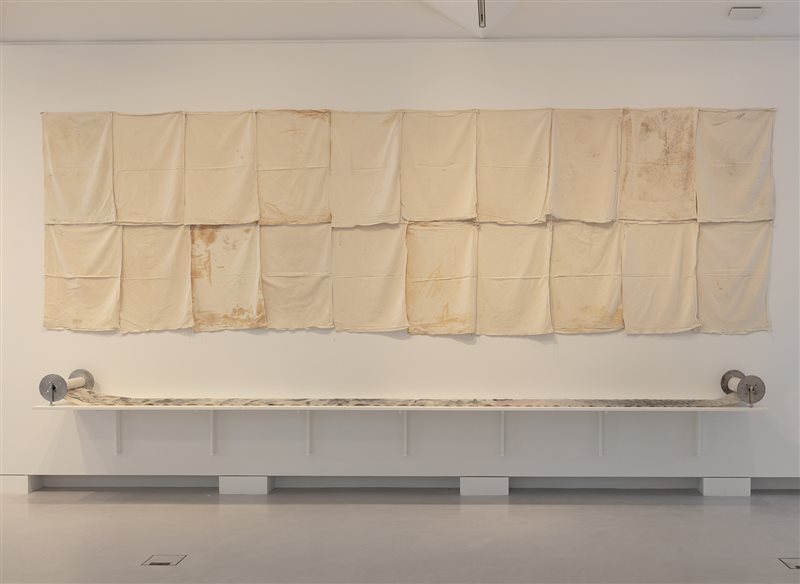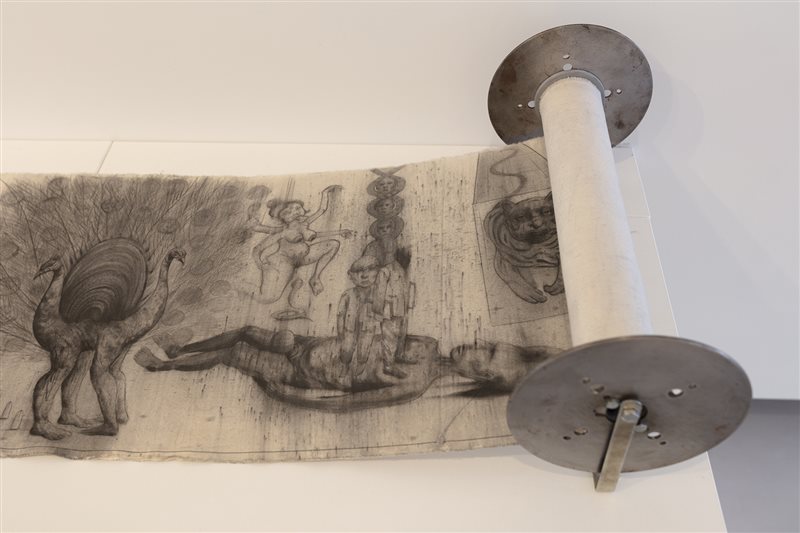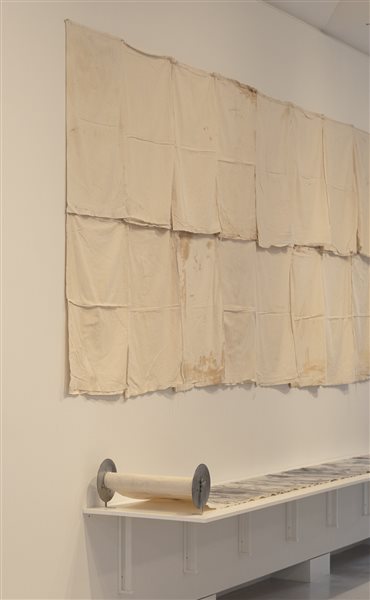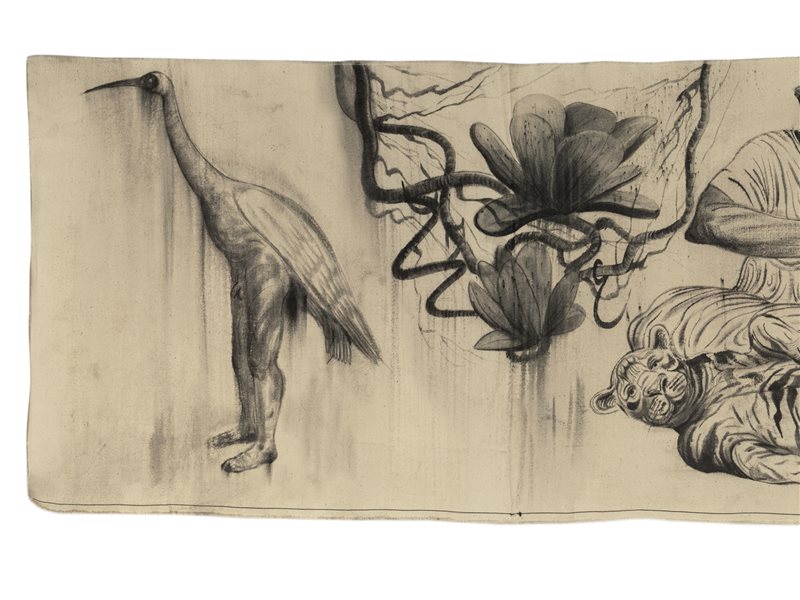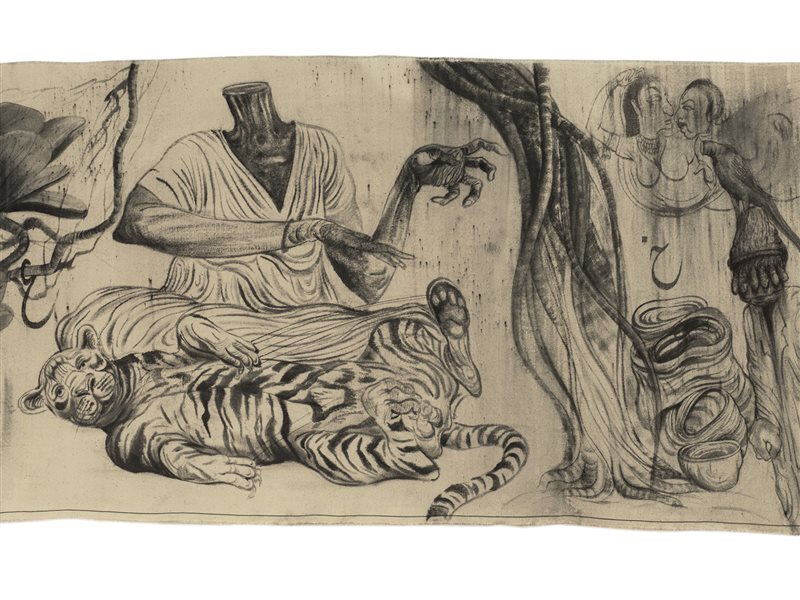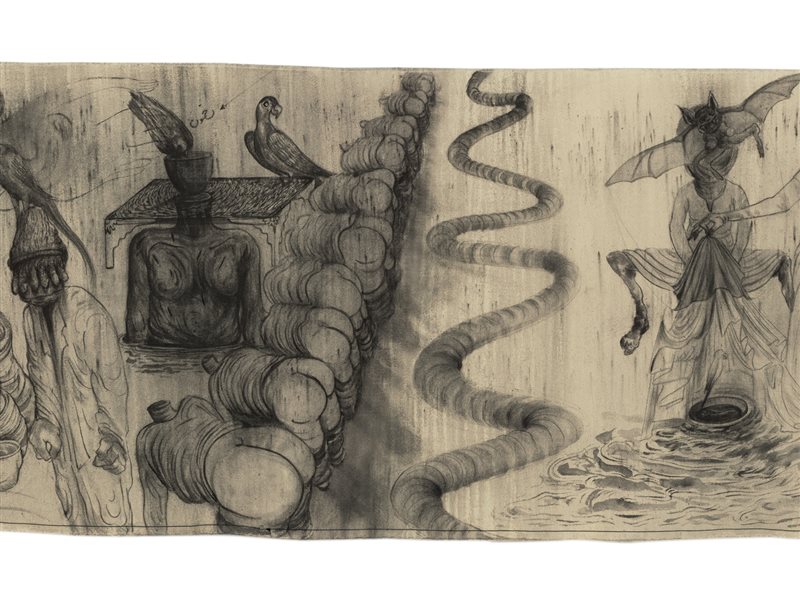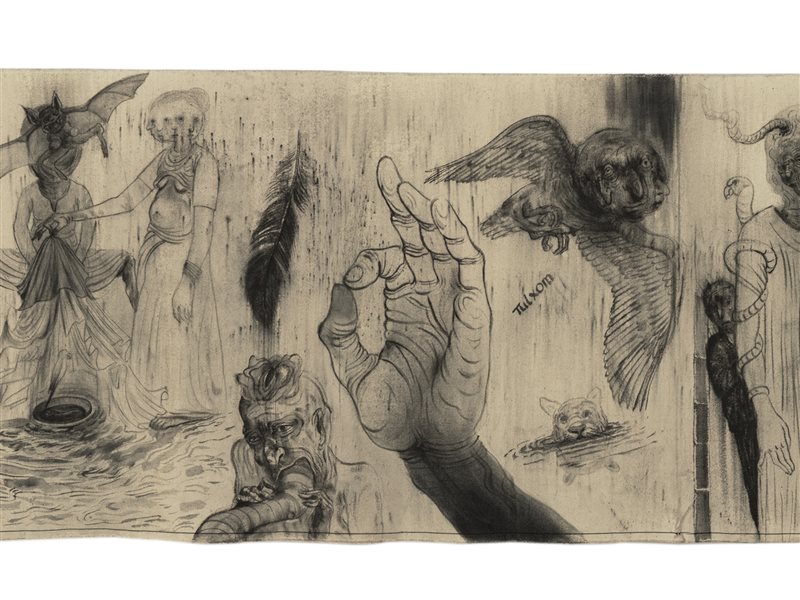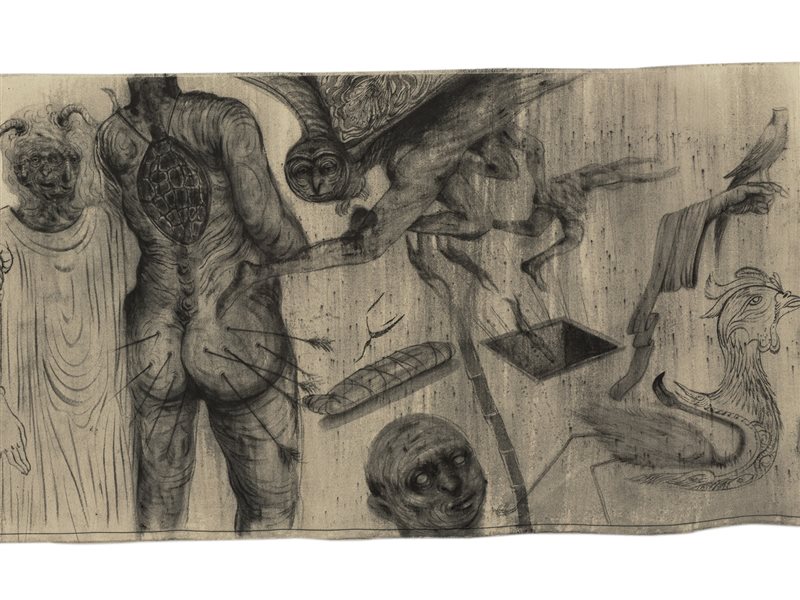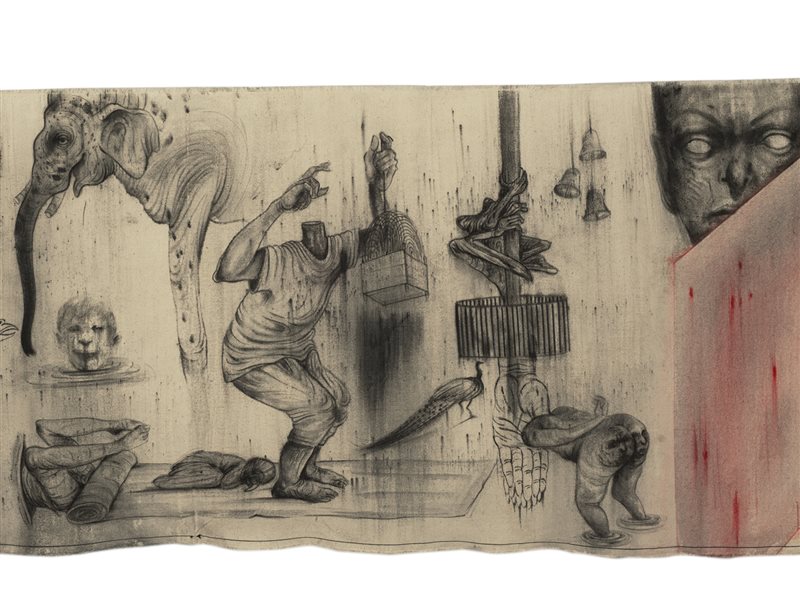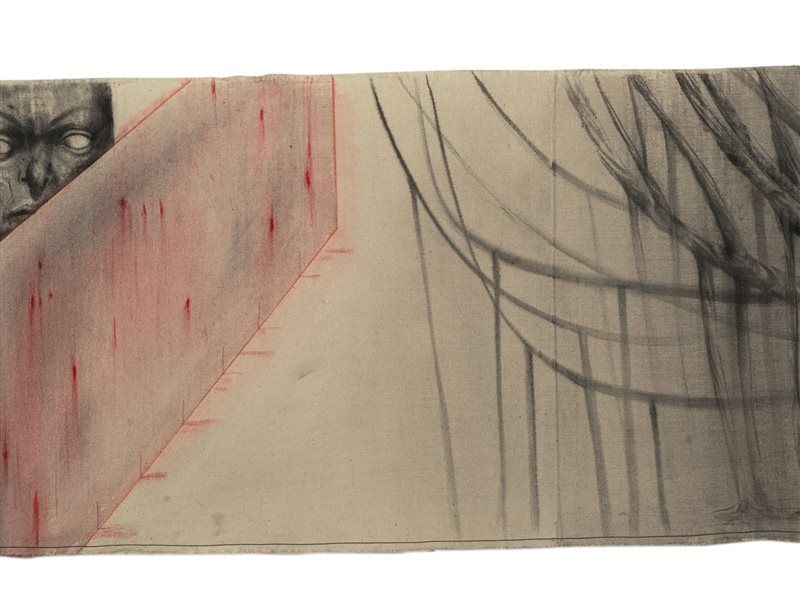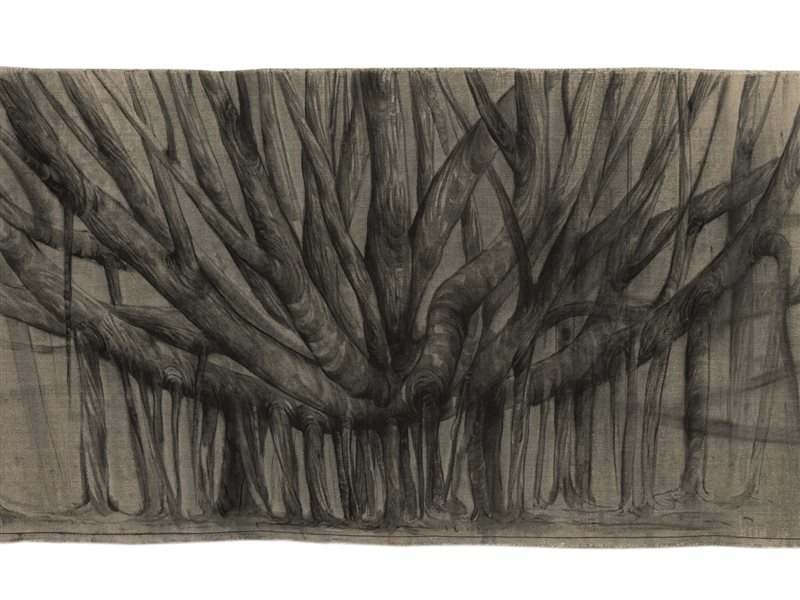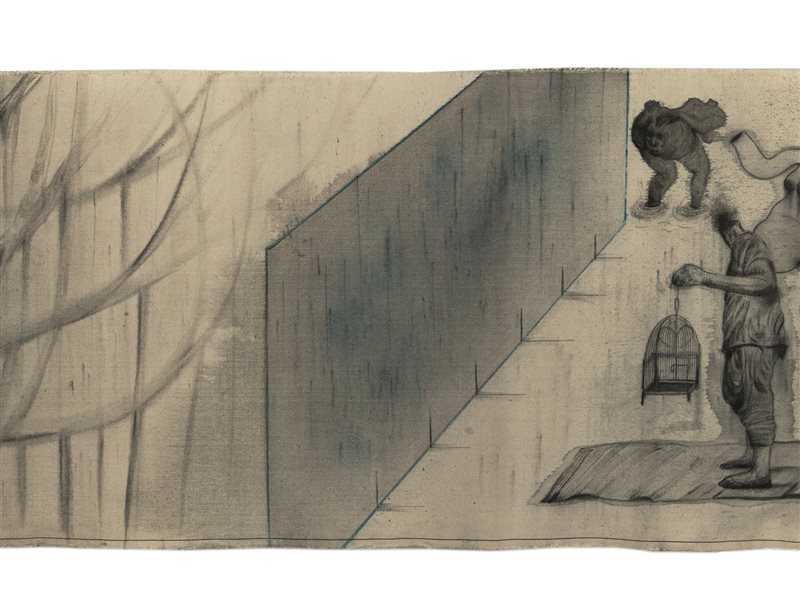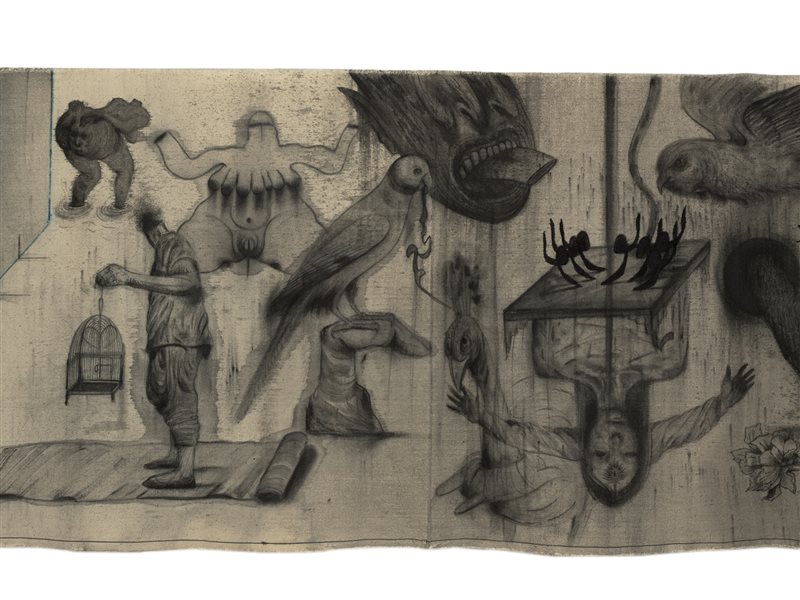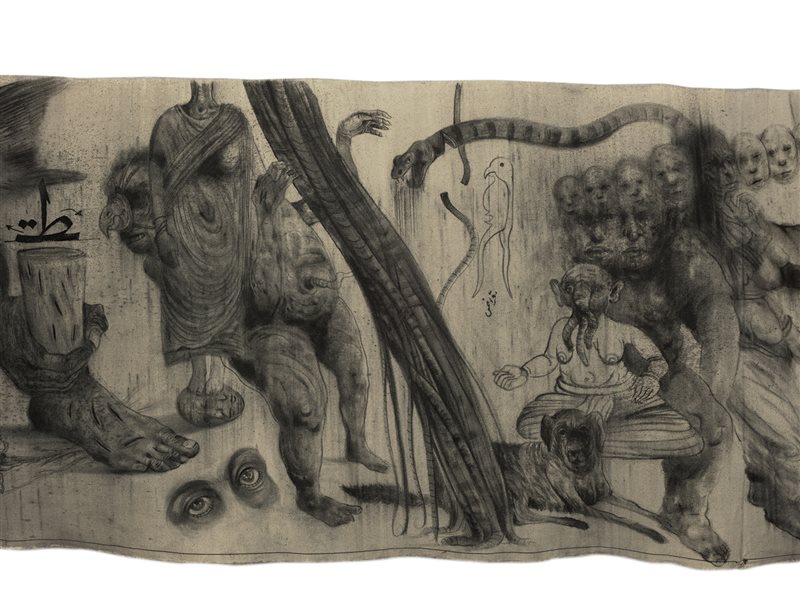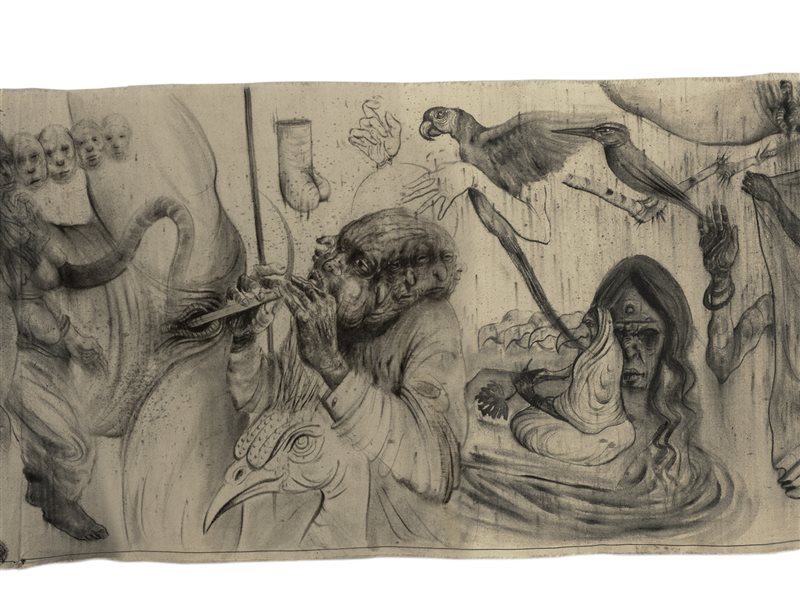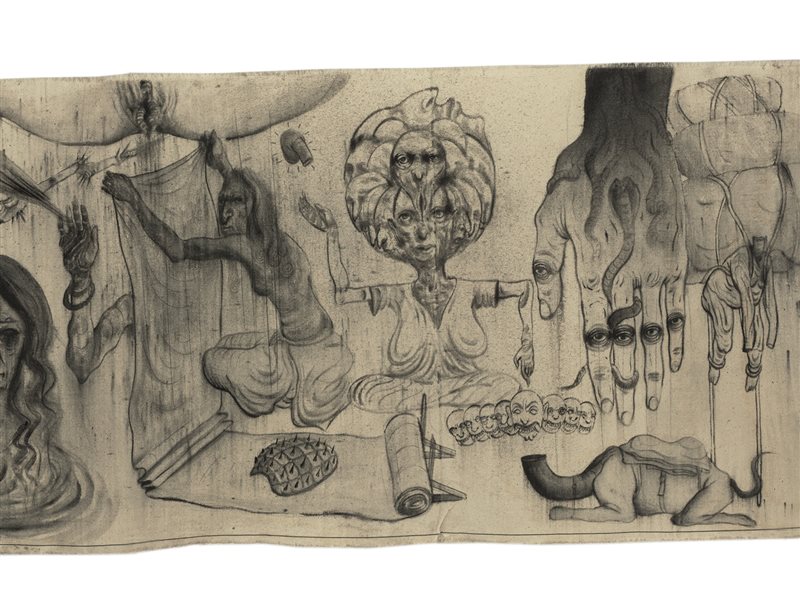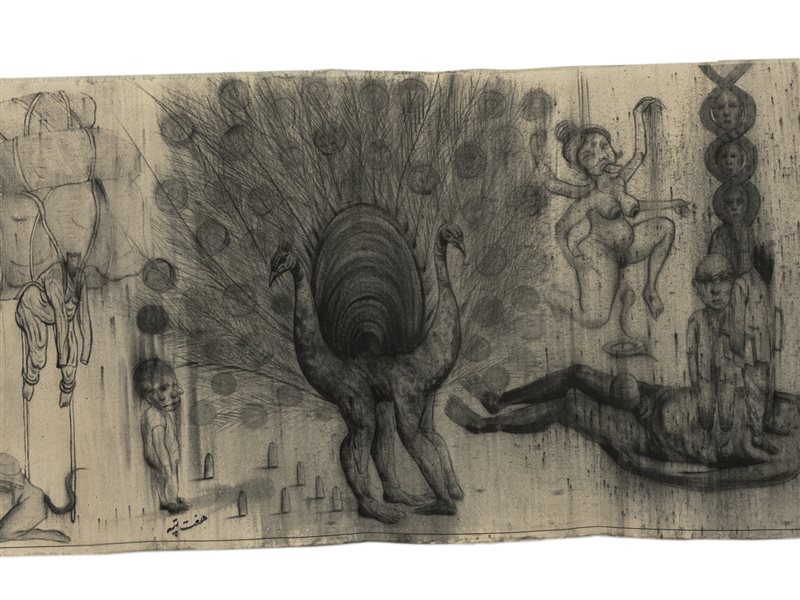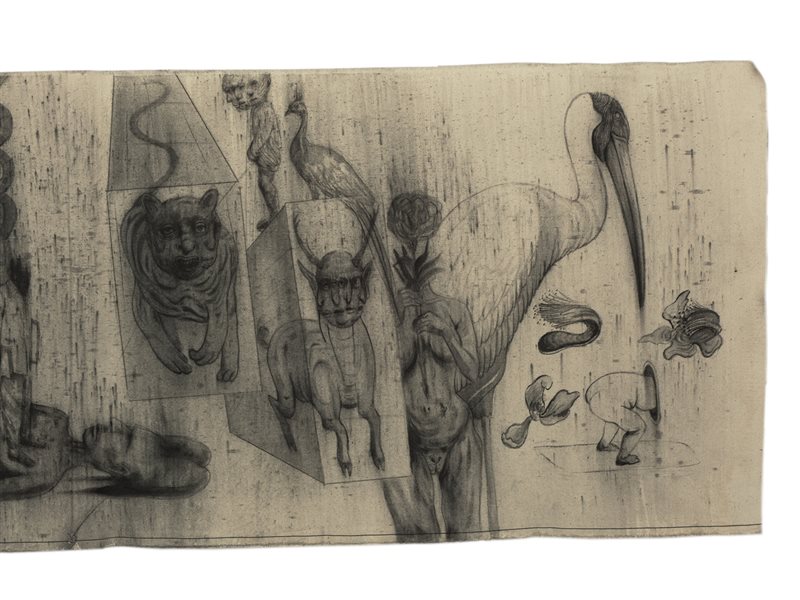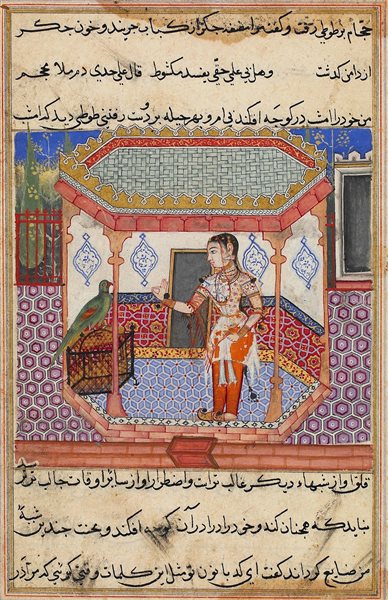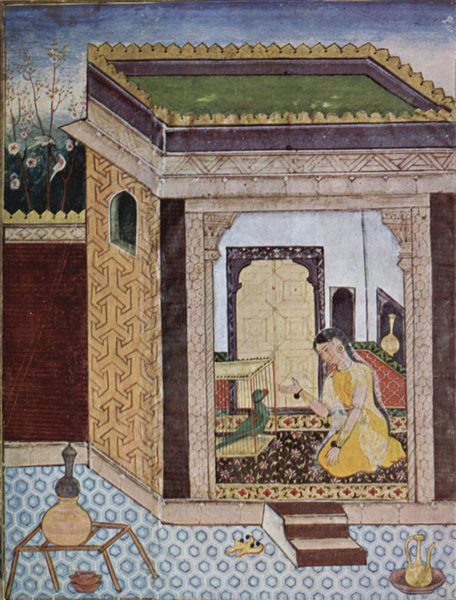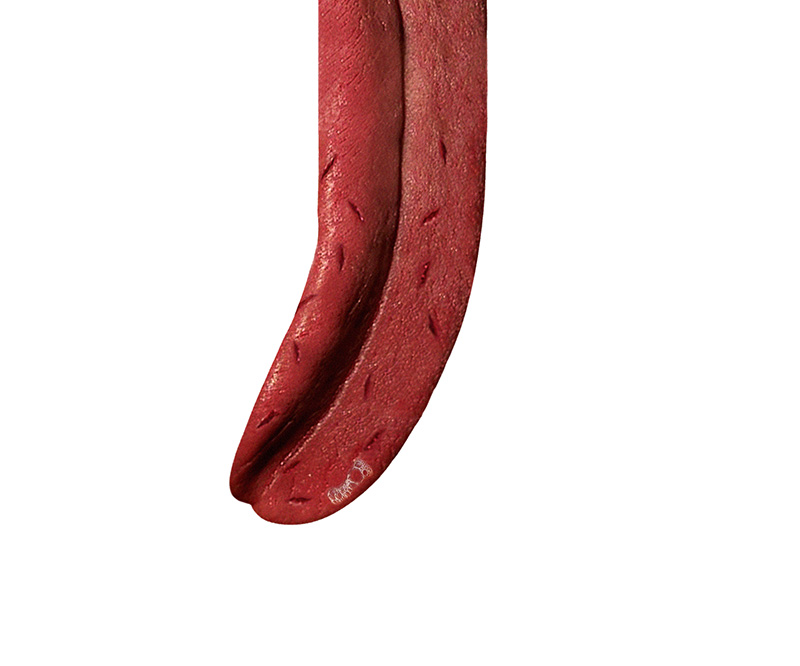 ABOUT
WORKS
LINK
ABOUT
WORKS
LINK
OVERALL VIEW
My artistic activity is related to my experiences in graphics, drawing, painting, sculpting, and video arts. I present most of my ideas via various Media. As a multidisciplinary artist, I have a critical viewpoint my surroundings may take different issues into consideration; however, there is a close connection between image, imagination, signs, language, philosophy, and society in my works. My artworks are a mirror hold before life, culture and my ambitions. I might manipulate the position of some elements in nature, environment, society, linguistics or go beyond the simplicity of the surface and read between the lines but I am always influenced by the environment and I try to refer to social points which may be odd and also interesting for the people in other parts of the world. I always try to have creativity by the manipulation of perceptible facts surrounding me. To be honest, as a Middle Eastern citizen, I attempt to inspire myself by the exotic/odd social and cultural conditions. It is to be mentioned that I consider the cultural and artistic origins of my country; however, I tend to ponder upon the issues of contemporary human beings by the language of art. In order to do this, I do not seek to find answers about the conditions of my environment. Rather, I am willing to pose questions about them. I like to be in contact with the average people and I try to attain a better perception of each of them. Moreover, the nature is strongly inspiring for me. I try to depict the differences of intangible contrasts among the phenomena of the environs. I find take most of my ideas from the society; therefore, I work in a new environment in order to augment my experiences by meeting new cultures, artists, and people therefore, open a new page by the inspiration of new situations. Titles are of high importance in my artworks because they are formed by a targeted, deliberate transformation. I always get involved with language-as an active and living element in men’s life- and its manifestation in the form of spoken, written, and sometimes acting which is a universal language (body language).This is why I ponder over art and it is a means to converse with myself and the world around, a conversation which may not lead to an instructive or actual conclusion but reveals my way of thinking and imagination. Furthermore, it pictures the blurred borders of our own worlds.
BIOGRAPHY
BIO
Seyed Amin Bagheri born in 1981, Iran, works and lives in Tehran. His artistic activity is related to his experiences in graphics, drawing, painting, sculpting, and video arts. In recent years he has presented most of his ideas in installations including various Media, but mainly he is interested in drawing. There is a close connection between image, imagination, signs, language, philosophy, and society in his works. As a multidisciplinary artist, he has a critical viewpoint his surroundings. As a Middle Eastern citizen, he is inspired by his situation. It is to be mentioned that he considers the cultural and artistic origins of his country. He received many awards including The superior selected in Iran Contemporary drawing festival, Imam Ali Museum of Art, Tehran, Iran (2007); The superior selected in The Islamic Countries Youth 14th Visual Art Festival (Painting), Urumia, Iran (2007); and The superior selected in The Islamic Countries Youth 13th Visual Art Festival (Drawing), Ardabil, Iran (2006). He also was selected for Fordsburg Artists´ Studios Bag Factory residency in Johannesburg, South Africa (2016).
CV
Education:
Faculty of Fine Arts and Architecture, Tehran Azad University, MA in Painting, 2010
Soureh University, Shiraz, Iran, BA in Painting, 2005
Exhibitions
2022 Difficult delivery of the immortal baby (online exhibition), Ab_anbar Gallery, London, England
2019 A home 2 (Oct.2018-May 2019), private show, Pune, India
2017 A home 1 (2008-2017), private show, Tehran, Iran
2017 , Gallery Bertrand Gillig, show, Strasbourg, France
2016 “Grafenberg Area”, Etemad Gallery, Tehran, Iran
2015 “Bitterfly”, Etemad Gallery, Tehran, Iran
2013 “Communicate to Survive”, show, Vali Gallery, Tehran, Iran
2010 “Bipardekhani”, with narration by Salman Farkhondeh (Exhibition of 3 Art pieces), Shiraz, Iran
2009 “Third Class Citizen”, Homa Gallery, Tehran, Iran
2009 “Double Creativity”, Iranian Artists’ Forum, Mirmiran Gallery, Tehran, Iran
2008 “Walking with Brain”, Homa Gallery, Tehran, Iran
2005 “Our Pets”, show,The Artists' Forum, Shiraz, Iran
2003 “Human in the margin”, show, Baran Gallery, Shiraz, Iran
Selected Group:
2022 Thingamajig,Ab_anbar Gallery, London, England
2020 “on paper”, Etemad Gallery, Tehran, Iran
2019 National Gallery of Macedonia, Chifte hamam, Skopje, Macedonia
2018 Crisis, Sareban Gallery, Tehran, Iran
2017 Vague Reality, Farmanfarma Art Gallery, Tehran, Iran
2017 Celebrating the great Iranian Poet "Sa'di", Hepta Gallery, Tehran, Iran
2017 The Greedy, Sales Gallery, Tehran, Iran
2016 The Victim-Player, Hepta Gallery, Tehran, Iran
2016 The Compatibility of Paradox, Abad Gallery, Tehran, Iran
2016 National Gallery of Macedonia, Chifte hamam, Skopje, Macedonia
2016 Return, Not Gallery, Tehran, Iran
2015 Summer Group Exhibition, Etemad Gallery, Tehran, Iran
2015 Drawing Week 3, Homa Gallery, Tehran, Iran
2015 “Spring Hesitance”, Negarestan Garden, Tehran, Iran
2014 “Thirsty on Sepidrood Bank”, Laleh Gallery, Tehran, Iran
2014 “The Feeling of Happiness”, Drawing Week2, Homa Gallery, Tehran, Iran
2014 “Non-Hatred Movement”, Day Gallery, Tehran, Iran
2013 “History Game”, Etemad Gallery, Tehran, Iran
2013 “+88”, Semnan’s Art University’s masters and students, Laleh Gallery, Tehran, Iran
2013 “Still life”, Vali Gallery, Tehran, Iran
2013 “Contemporary Iranian Art Exhibition”, Pro Art Gallery, Dubai, UAE
2013 “Upcoming Iranian Artists Exhibition”, Pro Art Gallery, Dubai, UAE
2013 “Drawing Week ”, Homa Gallery, Tehran, Iran
2012 “The Game”, Shirin Gallery, Tehran, Iran
2011 “Living in Transition”, Fravahr Gallery, Tehran, Iran
2010 “Design Facing Design II”, Homa Gallery, Tehran, Iran
2010 “On the Human Pulse”, Art Center, Tehran, Iran
2010 “The Cat, Petroleum Products, Territorial Divisions ”, Mehrva Gallery, Tehran, Iran
2010 “Every Painting counts”, Bayat Abdullah Campaign, Kuwait
2007 “Iran Contemporary Drawing Group Exhibition”, Imam Ali Museum of Art, Tehran, Iran
2006 “Human, Repetition, Human”, Aria Gallery, Tehran, Iran
2004 Sam Scorer Gallery, Lincoln, England
2003 “Shid”, Vesal Gallery, Shiraz, Iran
2003 Conceptual Art Group Exhibition, The Artists' Forum, Shiraz, Iran
2003 Workshop & Painting Group Exhibition, The Artists' Forum, Shiraz, Iran
Residency, Workshop, Open Studio, Biennial :
2018 Osten Biennial of Drawing, Skopje, Macedonia
2016 Bag Factory Artists' Studios, Johannesburg, South Africa
2016 Osten Biennial of Drawing, Skopje, Macedonia
2016 open studio, Darbast Platform, Mohsen Gallery, Tehran, Iran
2016 open studio, Bag Factory, Johannesburg, South Africa
2016 The Second Rybon International Artists' workshop, Tehran, Iran
2016 open studio, Deegar Platform, Tehran, Iran
Text, review, Interview:
“return”, paadmaan projects, interview part 1, Tehran, Iran, 2020
Kiaras, Dariush, “Art Folder” A review of recent works, Zivan magazine, vol.2, Summer2018, p.8-35
Alipanahlou, Mahrokh, " lack", Honar Agah Contemporary Art Magazine, vol. 14, Nov, 2016, p.25-27
Dalvand, Ahmadreza, "An Adventurous Dreamer´s Axonometric Images", Asia weekend Magazine, vol. 49, Mar. 11, 2015, p. 84
Javid, Setareh, Interview: "A Bitter tears which are pinned to the Mind", Asia weekend Magazine, vol. 49, Mar. 11, 2015, p. 85-87
Feshangchi, Mina, "From Corporeal to Spritual", Tandis Art Magazine, vol.293, 2015, p. 8
"Best Exhibitions in 2013", Tandis Art Magazine, vol. 270, 2014, p. 71
Maghrebi, Ziba, Interview: "How Emiratis have an influence on Iran art
Kasb-o-Kar Newspaper, No. 120, Oct. 26, 2013, p. 12
Rouhani, Omid, "About Amin Bagheri´s Drawing", www.aftab.ir, Jan. 6, 2010
Amin, Hoda, "From Delicacy to Decay", Bahar Newspaper Yearbook, No. 148, Mar. 13, 2010, p. 130
Eskandar, Nima, "Continues Happening named Being", Tehran Emruz Newspaper, Jan. 4, 2010, p. 11
Soltani, Mitra, "Social Sarcasm", www.roozonline.com, Dec. 9, 2009
Amin, Hoda, "Where everything becomes simple", Etemad Newspaper, No. 2128, Dec. 16, 2009, p. 9
Kamrani, Behnam, "Walking with Pencil", Tandis Art Magazine, vol. 132, 2008, p. 12
Publication:
Osten Biennial of Drawing catalog, Skopje, Macedonia, 2018, p98
Osten Biennial of Drawing catalog, Skopje, Macedonia, 2016, p126
Mourizinezhad, Hassan, "Contemporary Drawing Art of Iran", Peikareh Publication, 2013, p. 241
Tandis Art Magazine, vol.195, 2010, p. 9
"Annual Book of Graphic Design", Nazar research and cultural institute, 2008, p. 126-129
Iran Contemporary Drawing "The Future inscription Lines", Soundozi Art museum & Imam Ali museum publication, 2007, p. 131
Tandis Art Magazine, vol.114, 2007, p. 5
"Just Drawing", Tandis Art Magazine, vol. 69, 2005, p. 15
Awards:
2010 Commended by Iran Contemporary Perspective drawing festival, Rasht, Iran
2007 The superior selected in Iran Contemporary drawing festival, Imam Ali Museum of Art, Tehran, Iran
2007 The superior selected in The Islamic Countries Youth 14th Visual Art Festival (Painting), Urumia, Iran
2007 The 1st prize winner in Iran Contemporary Imam Reza Visual Art festival (Poster), Shiraz, Iran
2007 The 3rd prize winner in Iran Contemporary Imam Reza Visual Art festival (Painting), Shiraz, Iran
2006 The superior selected in The Islamic Countries Youth 13th Visual Art Festival (Drawing), Ardabil, Iran
2005 The 2nd prize winner in “Thousand Hands, Thousand Pieces” Painting festival, Shiraz, Iran
2004 The 1st prize winner in The “Naghsh e Khial” Visual Art Festival , Hafiz Tomb, Shiraz, Iran
2003 The 3rd prize winner in The First Fars great Visual Art festival (Drawing), Shiraz, Iran
